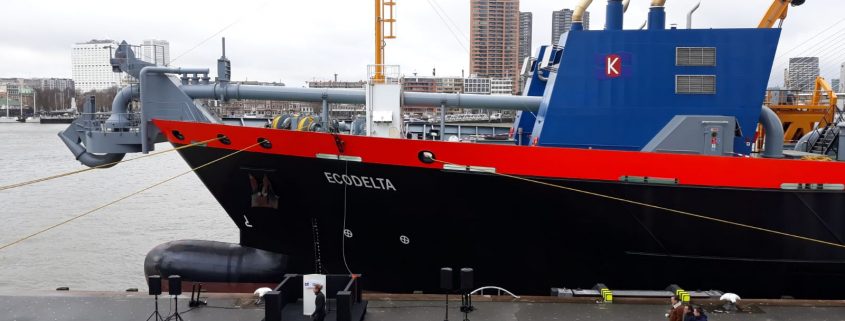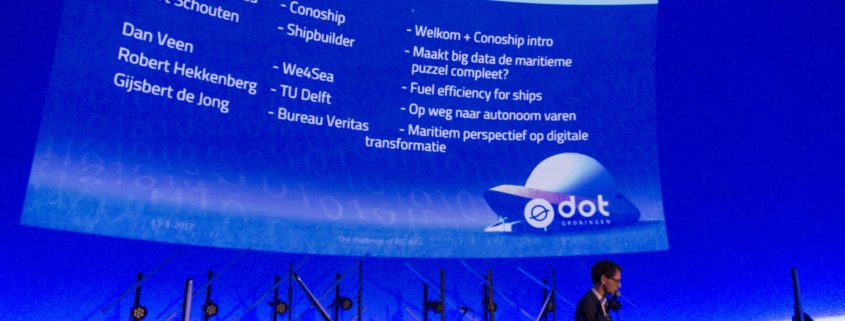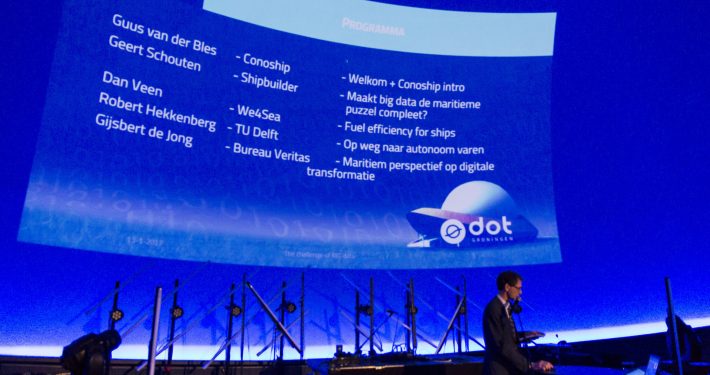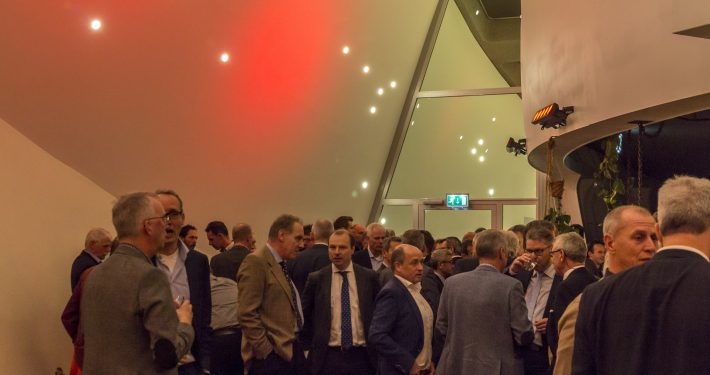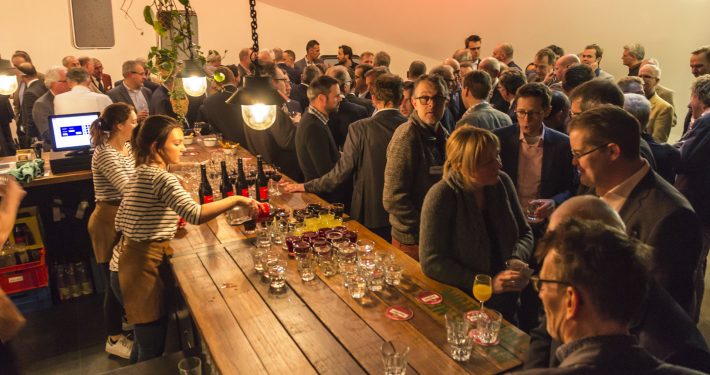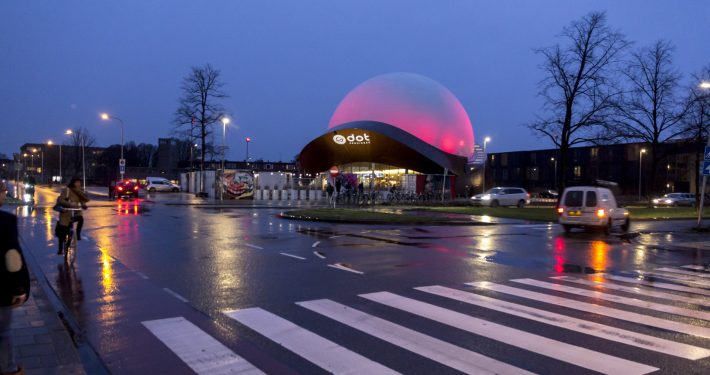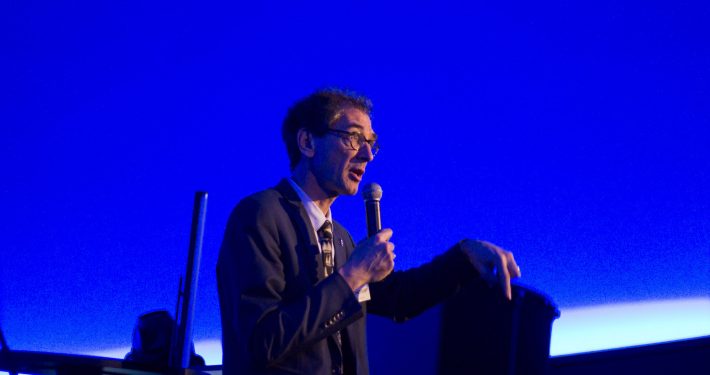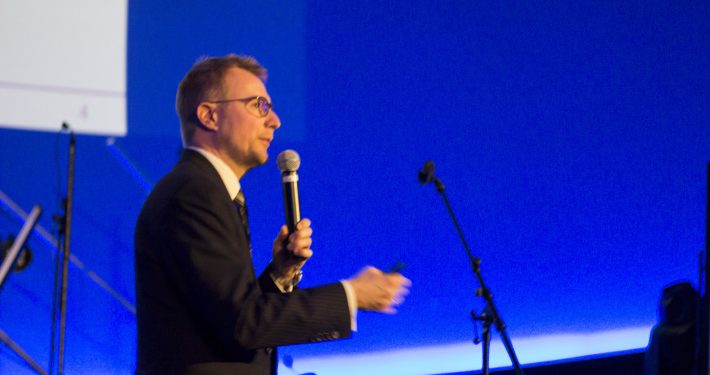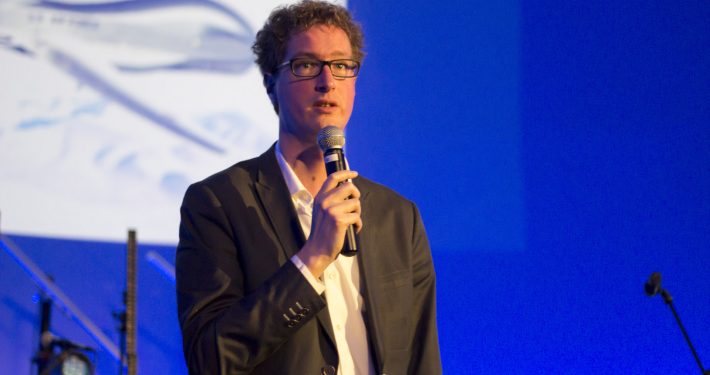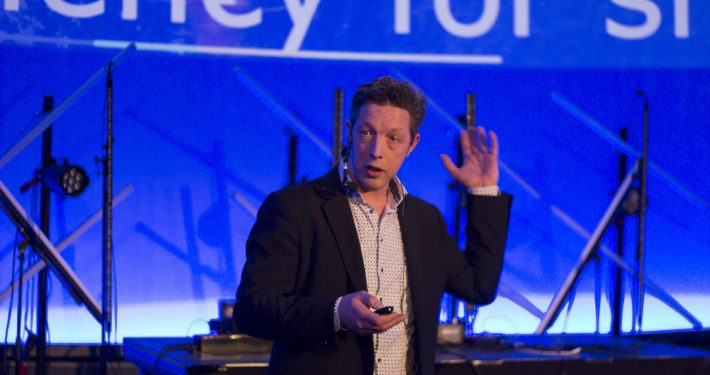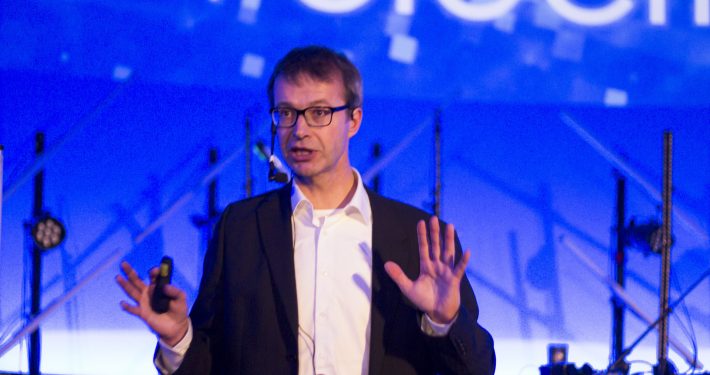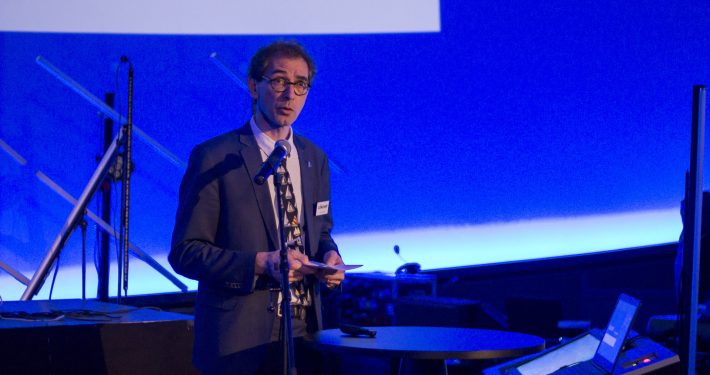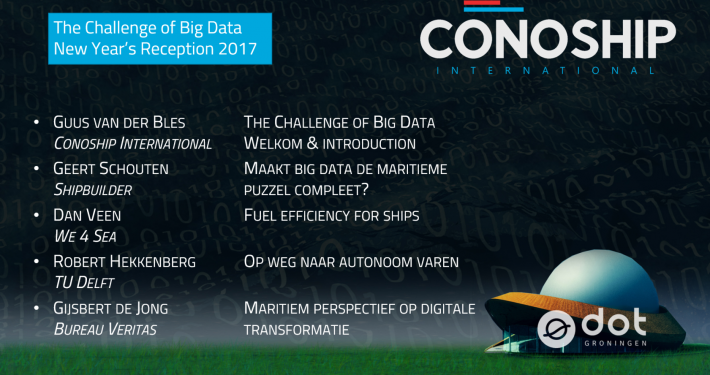This website uses cookies so that we can provide you with the best user experience possible. Cookie information is stored in your browser and performs functions such as recognising you when you return to our website and helping our team to understand which sections of the website you find most interesting and useful.
News about the maritime industry
Developments in the Northern Netherlands maritime innovative ecosystem
/in Industry, Innovation, News /by Gisela StaalIn the spotlight 1/4: Conoship’s consultancy for Governments and Professional Membership organizations
/in Conoship, Industry, News /by Thayse SteinReport feasibility study Shared Facility micro panel line handed over to deputy of the Province of Groningen
/in Industry, News /by Gisela StaalEcodelta – the new LNG consuming dredger
/in Industry, News, Sustainability /by Nanne SluisIn 2015, the project Ecodelta was initiated by Van der Kamp, a Zwolle-based dredging company and Conoship International. Ecodelta is a trailing suction hopper dredger which consumes liquified natural gas (LNG). This one of a kind dredger has two main objectives: recover valuable material from the seabed and create a greater depth of water. The vessel has a length over all of 134.10m, the breadth moulded 21.40m, a dredging draught of 7,770m, a hopper volume of 5900m3, a dredging depth below baseline of 35m and a Gross tonnage of 7560 GT. The ship has been designed by Conoship International and has been built by the Frisian shipyard Barkmeijer. Today, January 11th, the vessel will be christened. Conoship International congratulates Van der Kamp with reaching this milestone and thanks them for the pleasant cooperation throughout the project. Conoship International is very proud of the result and wishes the Ecodelta and her crew many safe journeys.
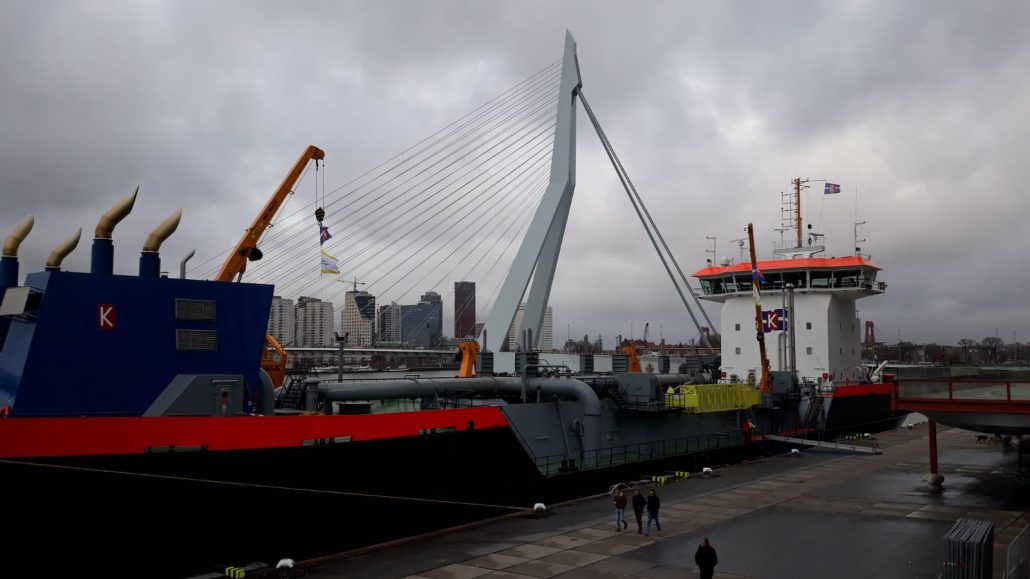
Environmentally friendly
Van der Kamp has signed a contract with the Port of Rotterdam Authority, in order to perform maintenance of port of Rotterdam until 2023. The final goal is to become the most sustainable port by replacing the fuel oil with LNG for shipping. Another advantage of LNG is cost-efficiency. The LNG tank of approximately 300m3, can store an energy which can be used in a period of two weeks.
Ecodelta is already meeting the upcoming regulations for emission reduction that will come in force in 2020. The usage of LNG reduces the emissions of CO2 up to 20% and NOx up to 85%. In addition, SOx is reduced to zero.
Read more about this ship:
Ecodelta 5,500 m3 TSHD on LNG (portfolio page)
Methanol as marine fuel
/in Industry, News, Sustainability /by Nanne SluisThe potential of methanol as alternative marine fuel: 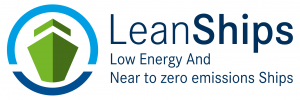
As member of the LeanShips project Conoship International plays a great role in the research of the possibility to use methanol as a marine fuel.
With its simple molecule, methanol has great potential to become the future marine fuel as it is safe to handle, environmentally friendly and can be produced from a large number of available raw materials from natural gas to biomass.
Conoship International already has a wide experience with assessments for conversions on existing ships but we also developed several new ship designs where the use of methanol as main fuel has a central role. These designs are made for new builds that will be powered with methanol as main fuel from the build or are easy to convert from one type of fuel to another.
Beside the technical part Conoship International has also developed a great Economic Assessment Tool. With this program several combinations of ship types, voyages and used fuel can be analyzed to compare alternative fuel options and to get an optimal prediction of the cost and returns for these scenarios.
Why methanol,
No sulfur and low NOx > near to zero emission.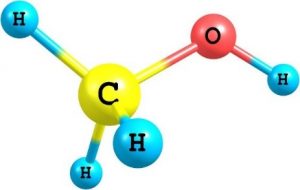
Still liquid under ambient circumstances so easy and safe to transport and store.
Dilutes in water so no environmental harm in case of spills.
Already adopted within the provisional rules and regulations of Lloyd’s Register.
Widely available all around the world.
Can be used as fuel for combustion engines and also with a DMFC (Direct Methanol fuel Cell)
Is it Green?
With methanol as a fuel you are in compliance with Tier III regulations without any further aftertreatment.
Methanol has a very small ecologic footprint as it can be produced from a variety of renewable sources.
Methanol readily dissolves in water and biodegrades rapidly.
Conoship International will keep on investing in new designs and knowledge and we are ready to help you with questions about new solutions for your future ship propulsion.
![]()
The Challenge of Big Data
/in Conoship, Events, Industry, News /by Alexander PostmaThe Challenge of Big Data, Conoship Internationals New Years reception
The 2017 Conoship New Year’s Event was a big success. Despite the early morning snow and the icy weather, many guests came to Groningen to toast to an exciting 2017.
Through the interesting presentations at our mini-symposium we got a glimpse of what the future might hold for the maritime industry: The Challenge of Big Data.
After Guus van der Bles (Conoship) shared Conoship’s thoughts on a number of subjects, including the potential of Big Data in Ship design, the questions it might raise and how Conoship is innovating and getting ready for the future, four other speakers followed and presented their view on big data from their own field of expertise.
Geert Schouten (Shipbuilder) showed us how big data has already been implemented in ship design and what advantages it can bring us through his program “Shipbuilder.” As an example, using a random GA and the application of augmented reality he showed us only a small part of what big data can mean not only for designers but also for ship-owners and shipyards.
Dan Veen (We4Sea) shared in a very clear presentation how his program uses big data to reduce fuel consumption up to 20% leading to lower emissions and getting grip on CO2 output. All this to save costs and at the same time comply with the latest emission regulations.
Robert Hekkenberg (TU Delft) put forth some interesting questions about autonomous shipping, referring to many commercial and non-commercials initiatives building on this subject. A Dutch Joint Industry Project and a European project concerning Autonomous Shipping are about to start, which should lead to two actual operational demonstrators.
Gijsbert de Jong (Bureau Veritas) presented to us how the class societies are getting ready for the future and how big data could bring all parties in shipbuilding closer together and make classification better and easier as well as part of the whole process of shipbuilding and shipping.
Conoship wants to thank all the guests for their presence and especially the speakers for their inspiring presentations.
We wish you all the best for 2017 and are certain that together we can make the best designs and vessels of the future.

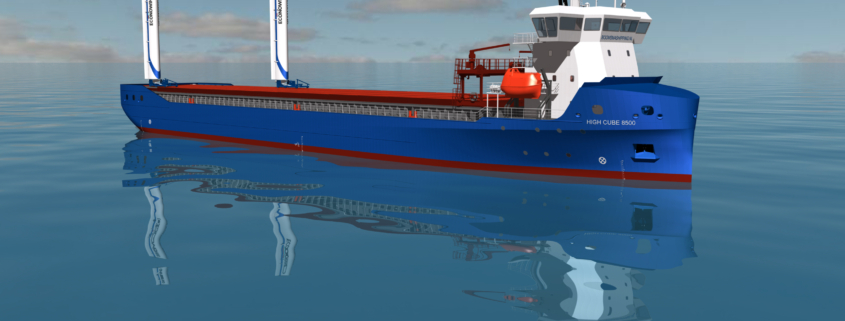
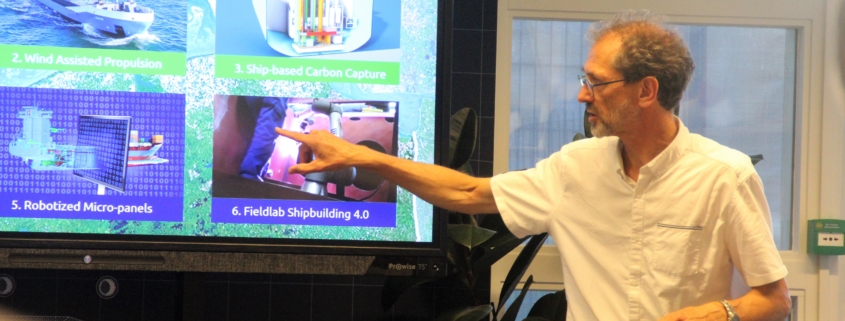
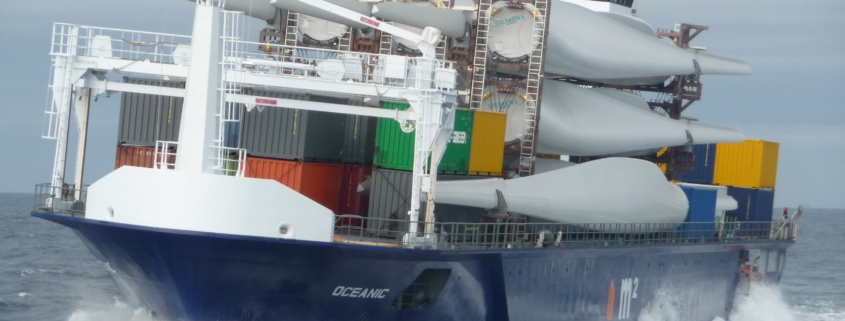
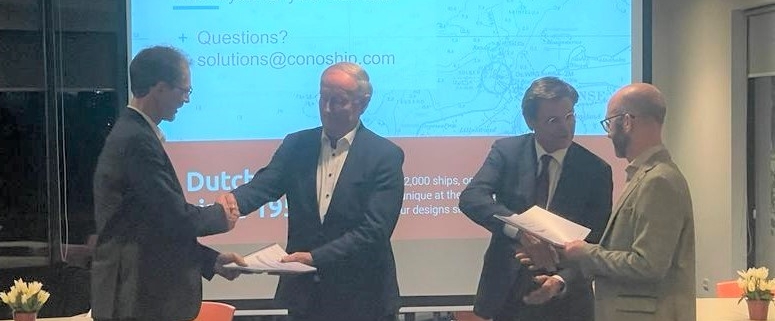 Conoship International
Conoship International